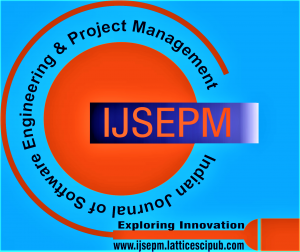![]()
Artificial Intelligence in Project Management: A Study of The Role of Ai-Powered Chatbots in Project Stakeholder Engagement
Herat Joshi
Herat Joshi, Department of Project Manager, Great River Health System, Burlington, Iowa (United States of America (USA).
Manuscript received on 04 January 2024 | Revised Manuscript received on 14 January 2024 | Manuscript Accepted on 15 January 2024 | Manuscript published on 30 January 2024 | PP: 21-26 | Volume-4 Issue-1, January 2024 | Retrieval Number: 100.1/ijsepm.B902204020724 | DOI: 10.54105/ijsepm.B9022.04010124
Open Access | Ethics and Policies | Cite | Zenodo | OJS | Indexing and Abstracting
© The Authors. Published by Lattice Science Publication (LSP). This is an open access article under the CC-BY-NC-ND license (http://creativecommons.org/licenses/by-nc-nd/4.0/)
Abstract: Artificial Intelligence (AI) is increasingly becoming a cornerstone in the evolution of project management. Its capabilities extend beyond simple automation, fostering improved decision-making processes and enhancing collaborative efforts. Among the various AI tools available, chatbots stand out as particularly transformative for project management. This study delves into the role of AI-powered chatbots in project stakeholder engagement, a critical aspect of successful project management. Chatbots, powered by sophisticated AI algorithms, can provide continuous support and interaction with project stakeholders. This is particularly vital in managing complex projects where continuous communication and prompt responses can significantly influence project success. The study examines how these AI-driven chatbots facilitate stakeholder engagement, focusing on key benefits such as improved communication, increased stakeholder satisfaction, and better overall project outcomes. Through a detailed analysis, we have identified that chatbots enhance communication by offering stakeholders immediate, personalized responses, thereby reducing response times and improving the efficiency of information exchange. This immediacy and personalization contribute to heightened stakeholder satisfaction, as stakeholders feel their concerns and queries are addressed promptly and effectively. Furthermore, our findings suggest that these improvements in stakeholder engagement directly correlate with enhanced project outcomes, including better adherence to timelines, improved project quality, and increased likelihood of meeting project objectives. However, the deployment of chatbots in project management is not without its challenges. One significant hurdle is the need for advanced natural language processing (NLP) capabilities. Effective chatbots must understand and process complex human language nuances to interact effectively with stakeholders. Another challenge observed is the potential for chatbots to become disruptive or annoying. This can occur when chatbots fail to provide relevant or accurate information, or when their interaction style does not align with stakeholder expectations. In conclusion, AI-powered chatbots hold substantial promise for revolutionizing stakeholder engagement in project management. While they present remarkable benefits in improving communication, stakeholder satisfaction, and project outcomes, there are challenges that need to be addressed. These include enhancing NLP capabilities and fine-tuning the interaction style of chatbots to suit diverse stakeholder groups. With these improvements, AI-powered chatbots could significantly contribute to the success of various projects, marking a new era in project management where AI plays a pivotal role in stakeholder engagement and overall project success.
Keywords: Artificial Intelligence (AI), Project Management, Chatbots, Stakeholder Engagement, Communication Efficiency, Natural Language Processing (NLP), Project Outcomes, Stakeholder
Scope of the Article: Communication
